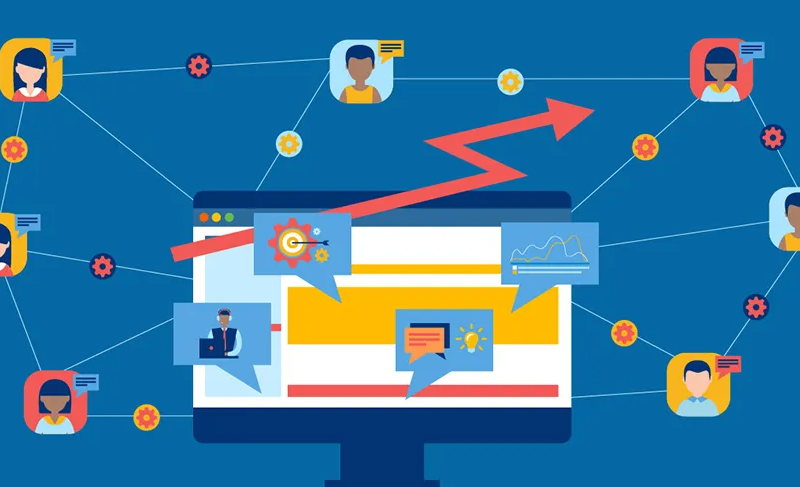The landscape of Customer Relationship Management (CRM) is undergoing a profound transformation, driven by advances in technology and changing customer expectations. As businesses strive to enhance customer engagement and operational efficiency, the future of CRM holds exciting trends and innovations.
From the integration of artificial intelligence and machine learning to the rise of omnichannel platforms and personalized customer experiences, the next wave of CRM solutions promises to redefine how companies interact with and serve their clients.
This article explores the key developments shaping the future of CRM, offering insights into the tools and strategies that will be essential for staying competitive in the coming years.
Emerging Trends and Innovations in CRM
The future of Customer Relationship Management (CRM) is being reshaped by several emerging trends and innovations that promise to revolutionize the way businesses interact with their customers.
These advancements are driven by technological progress, changing customer expectations, and the need for more efficient and personalized engagement. By staying ahead of these trends, companies can enhance customer satisfaction, improve operational efficiency, and gain a competitive edge in the market.
Artificial Intelligence and Machine Learning in CRM
Artificial Intelligence (AI) and Machine Learning (ML) are at the forefront of CRM innovation. These technologies enable CRM systems to analyze vast amounts of customer data in real-time, providing insights that can help businesses make informed decisions.
AI-driven chatbots and virtual assistants can handle customer inquiries more efficiently, reducing response times and improving customer satisfaction. Additionally, ML algorithms can predict customer behavior and preferences, allowing for more targeted marketing and personalized customer experiences.
Integration of IoT and CRM
The Internet of Things (IoT) is increasingly being integrated into CRM systems, opening up new possibilities for data collection and customer engagement. IoT devices can gather detailed information about customer usage patterns and product performance, which can be invaluable for improving product design and customer service.
For example, a CRM system integrated with IoT can proactively alert customers about maintenance needs or recommend additional products based on usage data, enhancing the overall customer experience.
Advanced Analytics and Data Visualization
Advanced analytics and data visualization tools are becoming essential components of modern CRM systems. These tools help businesses make sense of complex data sets by presenting information in intuitive and actionable formats.
Data visualization techniques can transform raw data into meaningful charts, graphs, and dashboards, making it easier for sales and marketing teams to identify trends, track performance, and make data-driven decisions.
Advanced analytics can also help in segmenting customers more accurately, tailoring marketing strategies to meet the specific needs of different customer groups.
| Trend | Description |
|---|---|
| Artificial Intelligence and Machine Learning | Enables real-time data analysis, predictive insights, and personalized customer experiences. |
| Integration of IoT | Facilitates data collection from IoT devices to enhance product design and customer service. |
| Advanced Analytics and Data Visualization | Provides intuitive data presentation to aid in decision-making and customer segmentation. |
Frequently Asked Questions
What are the most significant trends shaping the future of CRM?
The most significant trends shaping the future of CRM include artificial intelligence (AI) and machine learning, which enhance predictive analytics and personalization. Cloud-based solutions are also gaining traction for their scalability and accessibility. Mobile CRM is becoming essential, as businesses cater to on-the-go employees and customers.
Lastly, integration with emerging technologies like IoT and blockchain is driving new levels of efficiency and security.
How is AI transforming CRM systems?
AI is transforming CRM systems by automating routine tasks, providing real-time insights, and improving customer interactions. AI-driven chatbots and virtual assistants offer 24/7 customer support, while predictive analytics help identify sales opportunities and customer needs.
Machine learning algorithms enhance data segmentation and personalization, leading to more effective marketing campaigns and better customer experiences.
What role does data privacy play in the future of CRM?
Data privacy plays a crucial role in the future of CRM as regulatory requirements like GDPR and CCPA become more stringent. CRM systems must ensure data protection and compliance, building trust with customers. Features such as data encryption, anonymization, and consent management are becoming standard.
Transparent data practices and robust security measures are essential to maintain customer trust and avoid legal penalties.
How are CRM systems integrating with social media platforms?
CRM systems are integrating with social media platforms to enhance customer engagement and gather valuable insights. Social CRM features allow businesses to monitor social media conversations, respond to customer feedback, and track brand sentiment.
These integrations also enable targeted marketing campaigns and personalized communication, fostering stronger customer relationships and improving overall customer satisfaction.


